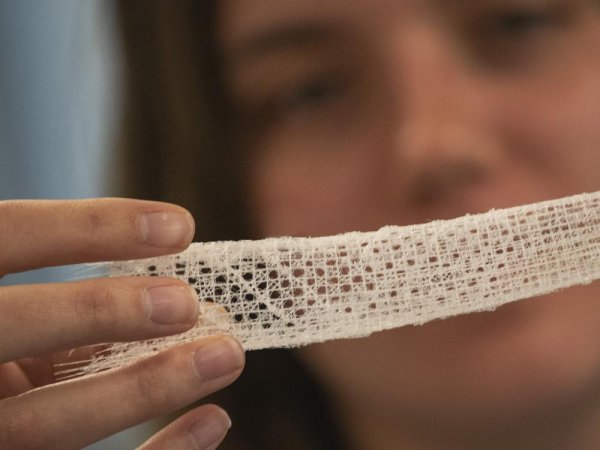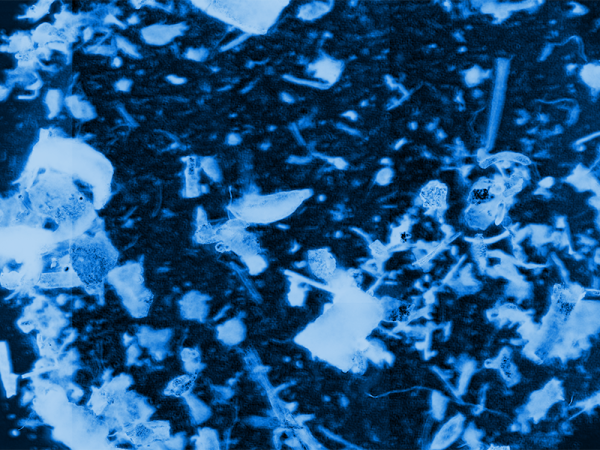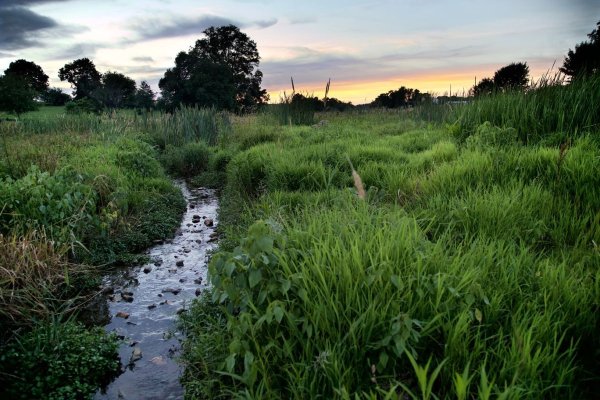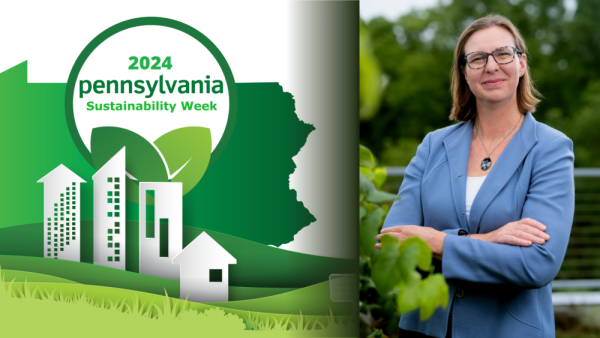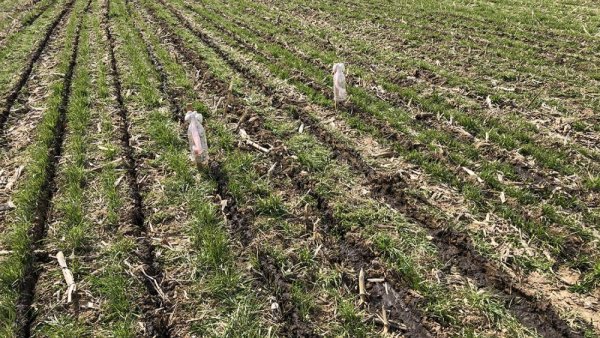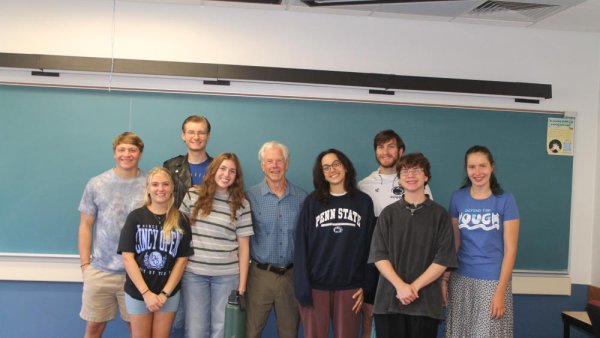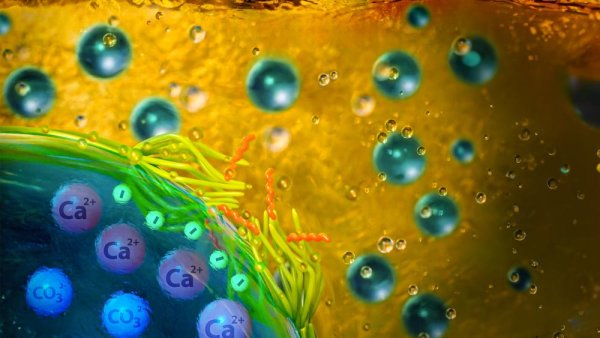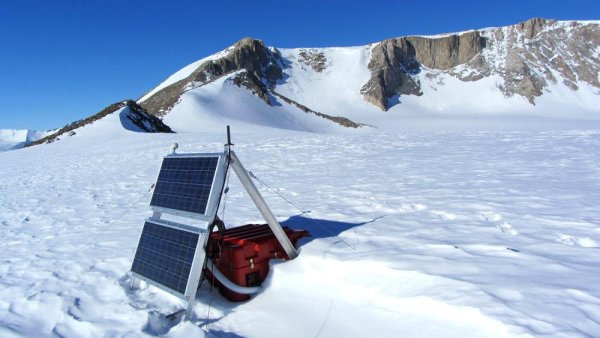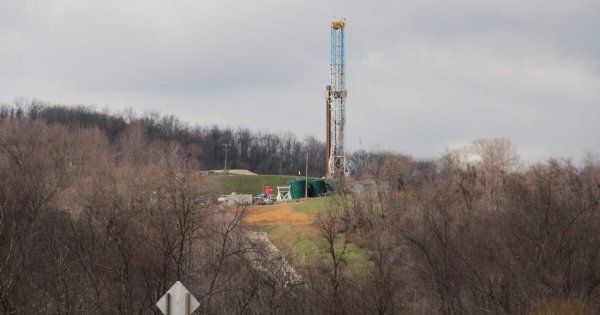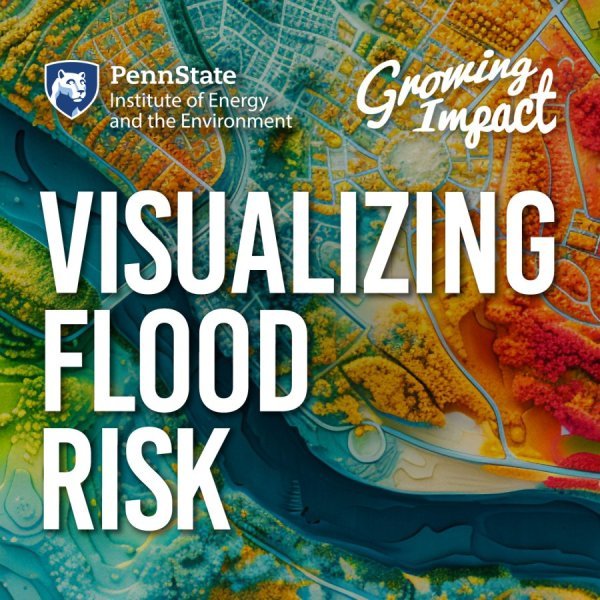Scanning nature for solutions with the Center for Quantitative Imaging
Fariborz Tavangarian, associate professor of mechanical engineering at Penn State Harrisburg, is investigating the intricate structure of a marine sponge (Eulectella aspergillum) to develop innovative materials for human bone tissue engineering. Despite being composed of fragile silica, the sponge exhibits remarkable strength due to its unique layered architecture.
Revealing microplastics with the Environmental Contaminants Analytical Laboratory
After the mass production of plastics began in the 1950s, plastic waste started to enter the environment. In time, this waste broke down into microplastics. For decades, these often-microscopic fragments of plastic have flowed into and through the water and soil.
Radiocarbon Lab assists floodplain reconstruction
Floodplains have been significantly altered since European settlers introduced mill dams and timbering, which increased erosion and led to rapid sediment accumulation. This transformation dramatically changed the natural landscape. Floodplain restoration regains the ecological benefits of the pre-industrialization landscape and is an effective method to improve water quality, prevent erosion, and boost biodiversity.
SustainPSU and Pa. GreenGov Council host annual Commonwealth Sustainability Week
| psu.edu
Building on their ongoing partnership, from Oct. 7 through 11, Penn State Sustainability and the Pennsylvania GreenGov Council will present the annual free online Commonwealth Sustainability Week aimed at empowering governments, organizations and individuals to advance Pennsylvania’s climate goals and to build more resilient communities.
Injecting manure into growing cover crops can cut pollution, support corn crops
| psu.edu
To better guide farmers managing nitrogen in the soil, a team of Penn State agricultural scientists conducted a new study on dairy manure management strategies for ecosystem services in no-till crop systems. In findings recently published in Agronomy Journal, they report a new strategy that achieves multiple conservation goals while maintaining corn yield: injecting manure into a growing cover crop in early spring.
Planning for an uncertain future in the Colorado River basin
| earth.com
Penn State researchers develop FRNSIC, a tool to help decision-makers navigate the Colorado River's future amid climate change and drought. This article quotes Antonia Hadjimichael, assistant professor of geosciences.
Tim Palmer visits as part of the Sustainability Showcase Speaker Series
| psu.edu
Penn State Sustainability welcomed photographer, author and Penn State alumnus Tim Palmer as its first speaker of the fall 2024 Sustainability Showcase Speaker Series. On Sept. 18, virtually and at Foster Auditorium in Paterno Library, Palmer discussed his latest book, "Seek Higher Ground: The Natural Solution to Our Flooding Crisis."
Energy and Environmental Economics and Policy seminar series continues Sept. 25
| psu.edu
Praharsh Patel, doctoral candidate in energy, environmental, and food economics at Penn State, will give the talk, “Behavioral responses to two-part tariffs: evidence from the introduction of volumetric water pricing,” at noon on Wednesday, Sept. 25, in 157 Hosler Building at Penn State University Park.
New material prevents mineral buildup in equipment handling water-oil mixtures
| psu.edu
Penn State researchers have developed a new nanoparticle that can prevent mineral buildup in oil extraction equipment and stabilize a commonly used emulsion, or liquid mixture. This development has the potential to make the oil extraction processes more efficient and less harmful to the environment, according to the team.
Wastewater holds the key to early disease detection
| earth.com
Learn how wastewater surveillance is now being used to detect foodborne pathogens like Salmonella, offering a new tool in public health. This article features Penn State research.
Earth beneath ice sheet key to predicting sea level rise from warming climate
| psu.edu
Findings from an international team of researchers, including those from Penn State, suggest that Earth's natural forces could substantially reduce the melting of the West Antarctic Ice Sheet and its impact on rising sea levels, but only if carbon emissions are swiftly reduced in the coming decades. By the same token, if emissions continue on the current rising trajectory, Antarctic ice loss could lead to more sea level rise in the future than previously thought, according to the researchers.
Scientists skeptical of oil and gas company’s claim that its fracking ‘poses no public health risks’
| wesa.fm
CNX says a research project it is conducting as part of a voluntary collaboration with the state of Pennsylvania has found no health risks near its operations, but scientists remain skeptical. This article quotes Jennifer Baka, associate professor of geography.

